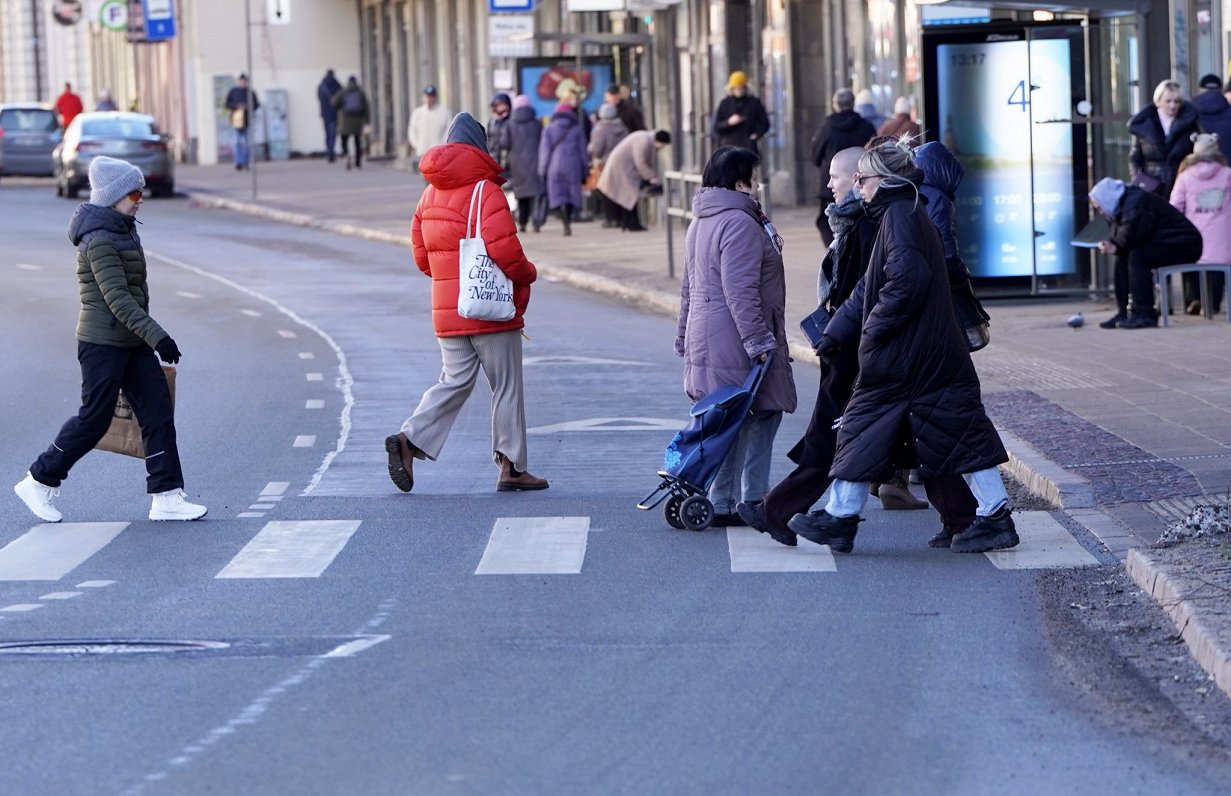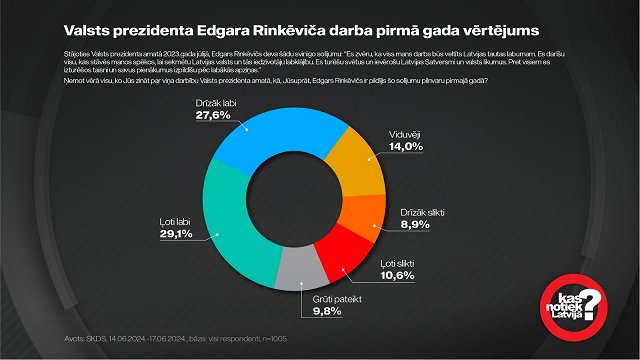The survey was conducted in March 2023, surveying more than 1,000 respondents, including about 600 Russian-speaking residents.
Residents were asked to assess what the priority directions for the development of international relations in Latvia should be – whether Latvia should look at the West or the East, including the former Soviet republics.
Overall, this year the highest percentage of people in the history of observation indicated that Latvia's foreign policy should look in the direction of the West. Such views were expressed by 63% of the surveyed population, five percentage points more than a year earlier. No survey was conducted in 2021, but the figure has never reached the 50% threshold before. Since 2008, the index has more than doubled.
This year, the survey also shows the historically lowest share of the population which believes that Latvia should focus on the East, with only 18% of the population indicating that. This is one percentage point less than in 2022 when Russia invaded Ukraine. So far, the highest rate was recorded in 2010 with 46% favoring the East.
This year's indicator has majorly shifted among the Russian-speaking population. Since 2019, support for Latvia's foreign policy course toward the East has fallen almost twice among Russian-speakers, from 55% in 2019 to 33% this year. The highest indicator in Latvia's Russian-speaking population was recorded in 2010, when 65% of Russian-speaking residents regarded the East as more appropriate for Latvian foreign policy.
The proportion of Russian-speaking people who believe that Latvia should look toward the West rose from 34% in 2022 to 41% this year.
Over the past four years, that figure has nearly doubled - up from 23% in 2019. The smallest support was recorded in 2010, when only 14% of Latvia's Russian-speaking officials expressed such views.
Meanwhile, 41% of those surveyed think Latvia's foreign policy orientation needs further and deeper integration of Latvia into the European Union (EU), 12% - closer cooperation and building a friendly relationship with Russia, while 35% - strengthening Latvia's independence and sovereignty without focusing on Russia or the West.






























